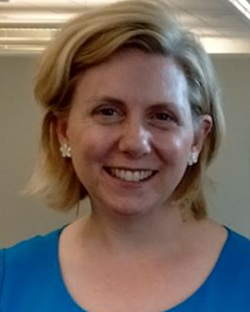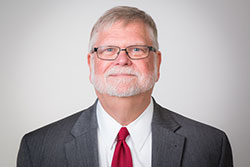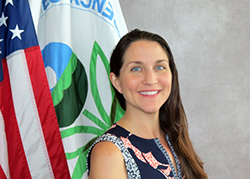Leveraging Resources for Brownfields Revitalization: Meet the Funders: Parks, Community Health, and the Arts
Sponsored by: U.S. EPA Office of Brownfields and Land Revitalization
Archived: Tuesday, February 28, 2017
Leveraging Resources for Brownfields Revitalization: Meet the Funders: Parks, Community Health, and the Arts
2017-02-28
U.S. EPA Office of Brownfields and Land Revitalization
Brownfield grants from the U.S. Environmental Protection Agency (EPA) are one of many sources of funds that can support redevelopment of contaminated sites. This webinar will highlight a number of redevelopment resources available from the National Park Service (NPS), The Department of Health and Human Services (HHS), and the National Endowment for the Arts (NEA) to leverage your brownfield dollars. The webinar will also feature a presentation from a community that has successfully used grants, loans and other support from these agencies for its revitalization efforts. It is the fourth in OBLR's webinar series on what communities need to know to successfully leverage resources for brownfields revitalization.
Agenda:
- Welcome: Andrew Seth, President, Sustainable Strategies DC
- Introductory Remarks: Aimee Storm, Land Revitalization Coordinator, U.S. EPA
- National Park Service Resources: Joel Lynch, State and Local Assistance Programs Division, National Park Service
- Health and Human Services Resources: Harold Taylor, Community Economic Development Specialist, Office of Community Services, Administration for Children and Families, HHS
- National Endowment for the Arts Resources: Jen Hughes, Community Solutions Specialist, NEA
- Case Study: James Thele, Planning Director, City of Omaha
Accessibility, Recording, and Content Disclaimer
Rehabilitation Act Notice for Reasonable Accommodation
It is EPA's policy to make reasonable accommodation to persons with disabilities wishing to participate in the agency's programs and activities, pursuant to the Rehabilitation Act of 1973, 29 U.S.C. 791. Any request for accommodation should be made to Patricia Overmeyer at 202-566-2774 or overmeyer.patricia@epa.gov, preferably one week or more in advance of the webinar, so that EPA will have sufficient time to process the request. EPA would welcome specific recommendations from requestors specifying the nature or type of accommodation needed. Please note that CLU-IN provides both alternate phone call-in options and closed captioning for all webinars, and requests for these specific accommodations are not necessary.
Webinar Recording
By participating in this CLU-IN webinar, you automatically agree to authorize recording of audio and visual content presented during this live event and consent to subsequent use of this recording in the public domain by the U.S. Environmental Protection Agency. This recording may include questions, comments and poll responses provided by you during the live event in addition to your name, voice, image or likeness. This recording will be made available after the conclusion of the live event as part of the CLU-IN webinar archives, and will remain available indefinitely. If you do not wish to consent to the recording, please do not join the live event, and contact Jean Balent at 202-566-0832 or balent.jean@epa.gov to discuss your concerns.
Content Disclaimer
This webinar is intended solely to provide information to the public. The views and opinions expressed as part of this webinar do not necessarily state or reflect those of the U.S. Environmental Protection Agency. It is not intended, nor can it be relied upon, to create any rights enforceable by any party in litigation with the United States, or to endorse the use of products or services provided by specific vendors. With respect to this webinar, neither the United States Government nor any of their employees, makes any warranty, express or implied, including the warranties of merchantability and fitness for a particular purpose, or assumes any legal liability or responsibility for the accuracy, completeness, or usefulness of any information, apparatus, product, or process disclosed, or represents that its use would not infringe privately owned rights.
Presenters:
Andrew Seth, Sustainable Strategies DC (andrew.seth@strategiesdc.com or 202-261-9881)
 Aimee Storm, U.S. EPA, Office of Brownfield and Land Revitalization (storm.aimee@epa.gov or 202-566-0633)
Aimee Storm, U.S. EPA, Office of Brownfield and Land Revitalization (storm.aimee@epa.gov or 202-566-0633)
Aimee Storm is EPA's Land Revitalization Coordinator within EPA's Office of Brownfields and Land Revitalization (OBLR). Her work supports community-led redevelopment of contaminated properties and associated neighborhood revitalization strategies. Prior to joining OBLR, Aimee worked on projects that promote green and healthy buildings and sustainable development approaches within EPA Region V's Chicago office. She also worked with EPA's Federal Facilities Restoration and Reuse Office, where she coordinated EPA's land reuse and revitalization efforts on federally-owned properties, including military base redevelopment. Aimee holds Masters Degrees in City & Regional Planning and Business Administration.
Joel Lynch, State and Local Assistance Programs Division, National Park Service (joel_lynch@nps.gov or 202-354-6905)
 Harold Taylor, Office of Community Services, Administration for Children and Families, HHS (harold.taylor@acf.hhs.gov or 202–401–5711)
Harold Taylor, Office of Community Services, Administration for Children and Families, HHS (harold.taylor@acf.hhs.gov or 202–401–5711)
Mr. Harold Taylor, Jr. is a Program Specialist with the Office of Community Services (OCS) within the Administration for Children and Families. He has more than 7 years of professional experience in the Community Economic Development program. He is a Washington, D.C. native and attended Shaw University before transferring to the University of the District of Columbia while earning a Bachelor of Business Administration in 1996, and pursued graduate studies at The George Washington University School of Business. Mr. Taylor started his career as a Statistician for the U.S. Department of Health and Human Services. In 2003, Harold changed career paths and started working for the Office of Community Services as a Program Specialist for the Community Economic Development (CED) and the Job Opportunities for Low–Income Individuals (JOLI) programs. Mr. Taylor has focused his energies on realizing the mission of the Community Economic Development and Job Opportunities for Low-Income Individuals programs through assisting grantees. Mr. Taylor really enjoys working with his local community and grantees nationwide to build healthy communities, and has received a number of awards over his tenure at OCS. Mr. Taylor has 20 years of Federal service.
 Jen Hughes, National Endowment for the Arts (hughesj@arts.gov or 202-682-5547)
Jen Hughes, National Endowment for the Arts (hughesj@arts.gov or 202-682-5547)
Jen Hughes currently serves as a community solutions specialist for the National Endowment for the Arts. In this position, she manages federal, philanthropic, and local relationships to strategically integrate arts and culture into community revitalization work. She currently oversees the Citizens' Institute on Rural Design as well as a pilot technical assistance program for NEA's creative placemaking grantees. Previously, she managed the Our Town creative placemaking grant program which has invested over $30 million in over 380 communities to execute design, arts engagement and cultural planning projects that impact the quality of life in local communities. Her prior experience includes working in both local government and the private sector. A Philly native, Jen holds an undergraduate degree from the Wharton School at the University of Pennsylvania and a Master of City Planning from the University of California, Berkeley.
 James Thele, Planning Director, City of Omaha (james.thele@cityofomaha.org or 402-444-5150)
James Thele, Planning Director, City of Omaha (james.thele@cityofomaha.org or 402-444-5150)
James R. Thele is currently the Director of the Planning Department for the City of Omaha. He is responsible for the overall management of the 127-position staff in the Urban Planning, Building and Development, and Housing and Community Development Divisions, including: long-range master planning, capital improvement programing, annexation studies, transportation planning, current project zoning and subdivision reviews and approvals, urban design project reviews, community and neighborhood design plans, building permit issuance and construction inspection, building contractor licensing, rehabilitation and redevelopment project planning and implementation, property maintenance code enforcement and administration of the planning board, construction trade boards, historic preservation commission and zoning and regulatory appeal boards.
Mr. Thele began his professional career at the Iowa Northland Regional Council of Governments in 1974 rising to the position of Senior Planner. In 1979 he accepted a position with the City of Omaha, becoming the director of the Mayor's Office of Economic Development. In 1984 he became the inaugural director of the Omaha Small business Network initiating the operation of a small business incubator program. He returned to the City of Omaha in 1990 and subsequently became the Assistant Planning Director for Housing and Community Development prior to accepting this current position in 2013.
Mr. Thele has served the public for 40 years in every aspect of urban planning and in operating and administering economic development and community development programs. Mr. Thele has a B.A. degree in Geography and History with graduate work in Real Estate, Economics and Urban Geography.
Moderators:
Andrew Seth, Sustainable Strategies DC (andrew.seth@strategiesdc.com or 202-261-9881)
 Jean Balent, U.S. EPA Technology Innovation and Field Services Division (balent.jean@epa.gov or 202-566-0832)
Jean Balent, U.S. EPA Technology Innovation and Field Services Division (balent.jean@epa.gov or 202-566-0832)
Ms Balent is on the staff of the EPA's Technology Innovation and Field Services Division where she has worked to collect and disseminate hazardous waste remediation and characterization information since 2003. Ms Balent manages the Clean Up Information Network website and actively supports online communication and collaboration resources available to EPA. She formerly worked with the US Army Corps of Engineers Environmental Engineering Division in the Buffalo District. Ms Balent was also a member of the SUNY-Buffalo Groundwater Research Group where she constructed and tested large scale models of groundwater flow. Ms Balent has also conducted research relating to the Great Lakes, environmental remediation, and brownfields re-development. She holds a Bachelor's degree in environmental engineering from SUNY-Buffalo and a Master's degree in Information Technology from AIU.
Webinar Slides and References:
Webinar Slides and References:
Additional Resources:
- Organization Grants, NEA
- Office of Community Services, HHS
- State and Local Assistance Programs Division, NPS
- Past "Meet the Funders" webinars archived on clu-in.org:
- Brownfields Area-Wide Planning Federal Resources Matrix (230KB/MS Excel): This spreadsheet is designed to be a tool that helps Brownfields Area-Wide Planning (BF AWP) grantee communities better understand the range of possible plan implementation resources available through federal government programs. If acquired, these resources can help BF AWP grantees make progress on their brownfields site assessment, remediation and community revitalization activities.
- Setting the Stage for Leveraging Resources for Brownfields Revitalization: This guide was developed by EPA to assist communities in overcoming the challenges of making sound investment decisions to attract additional resources for brownfields redevelopment projects and community revitalization. Sound initial investments of local funds can open opportunities for additional public funds and attract the interest and support of outside investors and lead to additional funding.
- 2015 Brownfields Federal Programs Guide: This document illustrates how the Brownfields Program does more than simply address environmental contamination—it recognizes that a community's quality of life goes hand-in-hand with economic development and sustainability, and encourages communities to develop and implement their own vision for community revitalization.
- EPA Brownfields Program
- EPA Land Revitalization Program
- Superfund Community Involvement Tools and Resources: This page provides links to the Superfund Community Involvement Toolkit and Handbook, as well as additional resources and information on how to use them.
- Types of Brownfields Grant Funding: EPA's Brownfields program provides direct funding for Brownfields assessment, cleanup, revolving loans, and environmental job training. This page describes each of the grant programs, and provides information on availability, requirements, and how to apply.
- Land Revitalization Program Tools for Communities: This fact sheet highlights some of the tools that have resulted from the regional community-based projects undertaken with assistance from the Land Revitalization Program. These useful tools can be adapted for use in other communities.
- Technical Assistance to Brownfields Communities: EPA is committed to providing technical assistance and resources to help small, rural, environmental justice, and other community stakeholders with the necessary technical assistance to aid in the assessment and cleanup of Brownfields properties. This page describes programs that currently provide this type of assistance and conduct research projects designed to help communities address brownfields.
- ATSDR Brownfield/Land Use Health Initiative: Community health considerations are important parts of ATSDR's land revitalization activities. As such, through its Brownfields/Land Reuse Health Initiative, ATSDR works to promote a well-rounded approach to redevelopment, include health as an important part of redevelopment, grow community resources to promote health, measure changes in community health, encourage early community involvement in decision making, restore and revitalize communities in a way that is fair to all community groups, promote relationships among, agencies, partners, and communities, and improve ways to talk about health and environmental risks.
- Council of Development Finance Agencies (CDFA): CDFA provides ongoing technical assistance on funding and financing resources available to brownfields communities.
If you have a suggested topic or idea for a future CLU-IN internet seminar, please contact:
Technology Integration and Information Branch
PH: 202-566-0832 | Email: balent.jean@epa.gov
Technology Integration and Information Branch
PH: 202-566-0875 | Email: adam.michael@epa.gov





